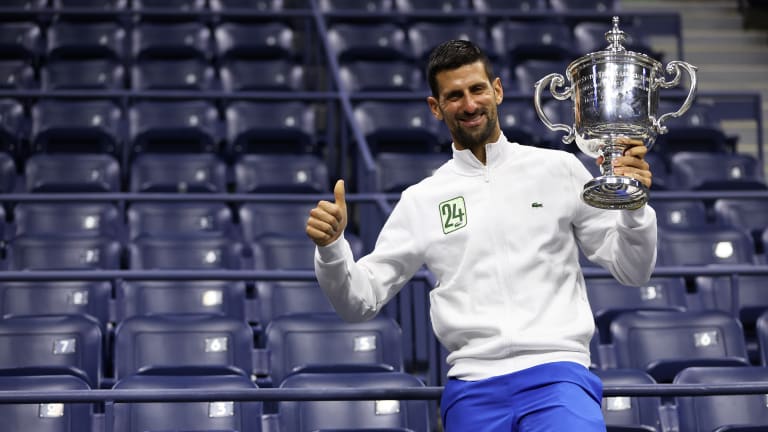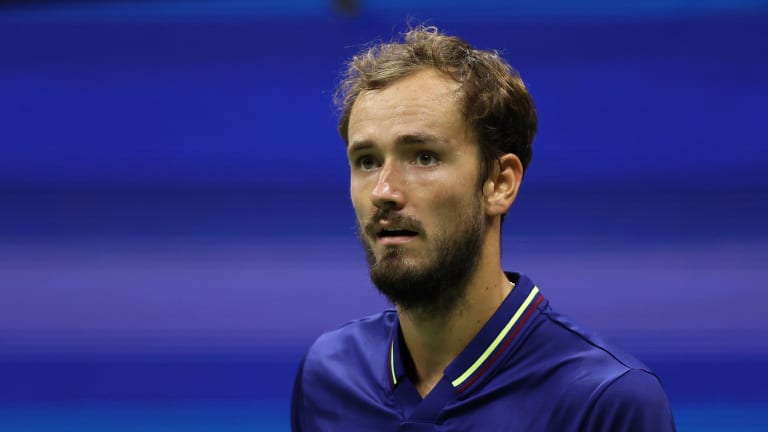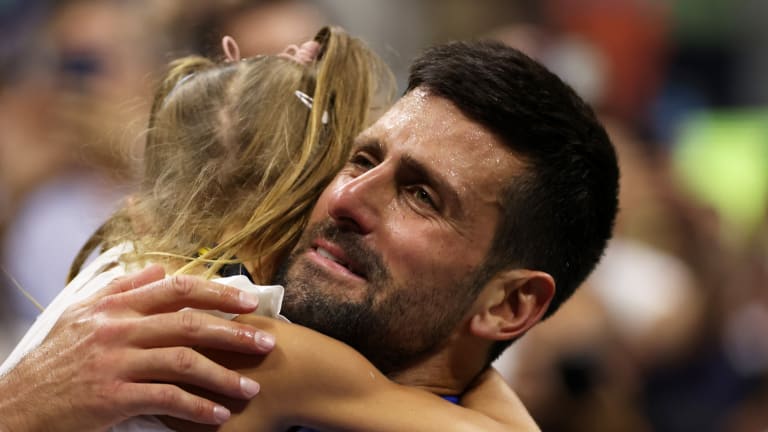US Open
Novak Djokovic put on one of his most impressive physical and tactical performances to win a 24th Grand Slam title
By Sep 11, 2023US Open
US Open revamps mixed doubles format, adds $1 million prize to incentivize "biggest names in the sport"
By Feb 11, 2025US Open
US Open adds a 15th day, moves to Sunday start in 2025
By Jan 29, 2025US Open
Post-2024 US Open WTA storylines: The Age of Aryna; what's next for Swiatek and Gauff?
By Sep 09, 2024US Open
Post-2024 US Open ATP storylines: The race between Alcaraz and Sinner for No. 1 ... and more
By Sep 09, 2024US Open
Jannik Sinner’s US Open title run won’t clear the air around him entirely
By Sep 09, 2024US Open
Taylor Fritz fails in US Open final, but hope springs for American men's tennis
By Sep 09, 2024US Open
Jannik Sinner storms to second major title, defeats Swift, Kelce-backed Taylor Fritz at US Open
By Sep 08, 2024US Open
Jessica Pegula's willingness to take chances paid off at the US Open
By Sep 08, 2024US Open
Aryna Sabalenka won her first US Open by learning from her past heartbreaks in New York
By Sep 08, 2024Novak Djokovic put on one of his most impressive physical and tactical performances to win a 24th Grand Slam title
The second set—one hour and 44 minutes long—was one of the most hard-fought in Grand Slam final history.
Published Sep 11, 2023
Advertising

Djokovic has won one of every three Grand Slam tournaments he's played, and is tied with Margaret Court for the most major singles titles.
© Getty Images
Advertising

Medvedev correctly predicted that he'd face a much different Djokovic than the last time they collided in Queens.
© Getty Images
Advertising
Advertising
Advertising

Love.
© Getty Images